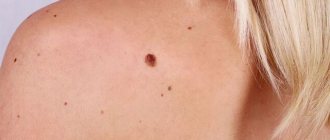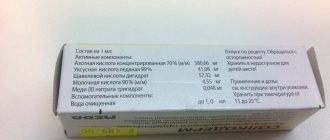- home
- Useful
- Prevention of ARVI and influenza in children
In winter, it is difficult to find a more pressing topic than the prevention of influenza and ARVI in children under 1 year of age and older. There are at least two hundred viruses that provoke the development of respiratory diseases, and the immune system of children, especially younger ones, is just learning to recognize them and fight pathology. The task of each parent is to minimize the likelihood of infection by any available methods.
In a multidisciplinary clinic, you can consult with an experienced specialist on the treatment and prevention of respiratory diseases during periods of epidemics.
General recommendations
There is a list of recommendations that includes publicly available measures to prevent ARVI and influenza in children, the effectiveness of which has been confirmed by the experience of ordinary people and doctors, including the authoritative specialist E.O. Komarovsky.
- Well-established life
It is difficult to fight germs and bacteria when living conditions contribute to their proliferation. To clean your home as much as possible from harmful microorganisms, you need to adhere to the following rules:- do not allow the temperature in the room to exceed 22ºС, in the bedroom - above 19ºС; - do wet cleaning daily; - treat door handles and switches with an antibacterial agent; — maintain air humidity in the range of 50-70%; - reduce the number of things that retain dust (stuffed toys, carpets, souvenirs, etc.) - regularly ventilate the rooms.
In addition, if one of the family members is sick, it is necessary to reduce the number of direct contacts with him.
- Nutrition
Physical condition directly depends on diet. This is especially important for a growing organism, so when organizing nutrition you need to:- adhere to a certain eating regimen; -create a balanced and varied menu; -eat small portions, 4-5 times a day; -limit the consumption of sweets, as well as foods high in unnatural additives.
It is important to remember that simple meals made from basic foods and seasonal vegetables and fruits are the healthiest. It is also worth maintaining water balance in the child’s body. The child needs to consume enough fluids daily (children over 2 years old - about 1 liter of water). At the initial stage, when the first symptoms appear, drinking plenty of fluids helps to quickly cleanse the body of pathogenic microorganisms.
- Hygiene
In addition to the basic rules of personal hygiene, you need to add special procedures that reduce the risk of colds:- wash your hands more often (mandatory if you cover your mouth with your palm when coughing or sneezing); - rinse the nasal passages and throat with special solutions; - do not touch your face with your hands and do not rub your eyes with them (use napkins); — during epidemics, use a disposable mask in places where people are present; - use your own personal items (toothbrush, comb, your own dishes and cutlery, etc.).
These are generally accepted rules that should not be neglected, allowing the proliferation of bacteria and viruses. If it is not possible to wash your hands, you can use antiseptics that are convenient to take with you.
- Daily regime
It is equally important to adhere to the routine:- night sleep should last at least 8 hours; — it is advisable to maintain a “quiet hour” during the day, especially for preschoolers; - Ensure adequate physical activity during the day.
Adequate rest is necessary to activate protective functions, regardless of age.
- Walking outside
To maximize your health in the fresh air, you must:- walk 3-4 hours daily (depending on weather conditions, you can adjust the time spent outside); - avoid hypothermia, especially long-term; - dress according to the weather, taking into account such factors as the presence of precipitation and ambient temperature, as well as the degree of activity of the baby; - if the child gets wet, return to the room as soon as possible, change into dry clothes and give him a warm drink.
For walks, it is better to choose parks and squares, pedestrian zones and areas located away from congestion of cars. In winter, it is advisable to avoid crowded places and give preference to a walk in the forest instead of visiting an entertainment center or cinema.
Prevention of ARVI and influenza in infants
Basic virus precautions for newborns are no different from general recommendations. But there are additional ways to protect the little ones:
- invite guests to your home less often to reduce the number of contacts;
- wash your hands thoroughly before interacting with your baby;
- provide the baby with his own hygiene supplies and separate dishes;
- refrain from introducing new products into complementary foods during epidemics;
- exclude unacceptable methods of “disinfection” (lick a fallen pacifier or spoon, etc.);
- Do not touch the child’s face with your hands on the street;
- bathe the baby daily in warm water (about 36ºС);
- Continue breastfeeding for at least 12 months.
Prevention of ARVI in children in kindergarten
In preschool institutions, sanitary and hygienic standards are constantly observed, and measures are taken to prevent the development of viral diseases, for example:
- air baths and hardening procedures (usually include gymnastic exercises, walking barefoot on a special surface);
- quartzing of premises.
It is equally important for parents to take precautions: if the baby shows the first signs of illness (stuffy or runny nose, coughing, etc.), you need to cancel your visit to the facility.
First aid
A runny nose causes discomfort to the child, disrupts sleep, and increases the risk of complications from the underlying respiratory tract, such as tonsillitis and bronchopulmonary diseases. In infants, nasal congestion makes sucking difficult. Fortunately, children's runny nose is curable; you need to start helping your child at the first symptoms of the disease.
First of all, you need to clean the nasal cavity. For infants, mucus is removed with an aspirator, after dripping a saline solution into each nostril to dilute the secretion. It is advisable for an older child to regularly rinse his nose with special means when he has a runny nose2, even if he already knows how to blow his nose.
With rhinitis, the nasal mucosa is irritated and swollen. To reduce discomfort, it is advisable to soften it with oil solutions of vitamins A and E (if the child does not have intolerance). To reduce swelling of the mucous membrane, you can apply a special ointment with essential oils to the wings of the nose.
Up to contents
Prevention of influenza and ARVI in schools
To reduce the likelihood of the spread of viruses among schoolchildren, you need to:
- ventilate classrooms at least 5 times a day;
- at the end of the educational process, do wet cleaning of the room;
- Students must wash their hands, observing the rules of personal hygiene;
- children with cold symptoms should wear disposable respiratory masks;
- Use saline solution to rinse your nose and gargle.
If the educational institution is not located near your home, but within walking distance, it is better to walk and not use public transport. This way you can avoid unnecessary contact with potential carriers of the virus.
Types and principle of action of antiviral drugs
There are several forms of drugs to fight viruses. These are drops, spray and ointment. The most effective and common are drops based on human interferon. This drug has pronounced antiviral and immunomodulatory properties. Another active component is interferon inducers.
Antiviral drugs affect all stages of the introduction of pathogens. Some drugs help destroy them, while other drugs stop the production and spread of viruses in the body.
Drug protection
The list of drugs for the prevention of influenza and ARVI is constantly updated with new items. Despite the wide range, there are a number of medications that have proven themselves to be good protection against colds.
- Antiviral tablets
To prevent the development of pathological processes, immunomodulators and interferon-based drugs are used. They are able to activate the immune system and compensate for the lack of their own interferons, which significantly increases resistance to viruses of various etiologies. Such drugs include Gripferon, Cycloferon, Kipferon and other medications. - Drops for children for the prevention of ARVI
Rinsing the nasal passages with saline or saline solution ensures the removal of pathological microorganisms, and as a result, protects against the penetration of viruses and bacteria. For the procedures, use pharmaceutical preparations: Aqualor, Aquamaris and others, or prepare a saline solution yourself, for which dissolve table salt in boiled water at the rate of ½ teaspoon of salt per glass of water. - Sprays in the throat for the prevention of ARVI
Antiseptic drugs in the form of sprays (Miramistin, Hexoral and others) should be used only as prescribed by a doctor. Self-administration of such medications, instead of benefit, can harm your health. - Ointments and gels for protection against colds
Ointments and gels are usually used for the nose, since the penetration of pathogenic microorganisms occurs mainly through the respiratory tract.They recommend Fleming's ointment, Oxolinic and Tetracycline ointments, Golden Star balm, Otofag gel and other products. Before use, you need to familiarize yourself with the age restrictions. Viferon ointment is also popular and effective for the prevention of ARVI in children and adults, including during pregnancy.
- Inhalations with saline solution for the prevention of acute respiratory viral infections in children
The purpose of such inhalation is to moisturize the mucous membranes and clear the respiratory tract of viruses and bacteria. At the first signs of a cold, this measure will shorten the treatment period or completely get rid of clinical manifestations in the early stages. But for no apparent reason, simply rinsing the nose is enough. - Vitamins
Multivitamins and vitamin complexes are dietary supplements and can be used according to the instructions (Vitrum, Alphabet, Multitabs and others). In this case, it is necessary to take into account the age and weight of the child, since excessive use of such additives will not be beneficial. In addition, a balanced diet, consumption of seasonal vegetables and fruits will provide the body with useful substances without special means. Before you start taking vitamins, you should visit a specialist. - Prevention of influenza and ARVI with folk remedies
Folk remedies do not have scientific confirmation, so their effectiveness can only be proven by one’s own experience. These include placing peeled garlic cloves indoors, “inhalation” over a pan of freshly boiled potatoes, hot drinks in the form of milk with butter, tea with honey or raspberry jam, and many other methods.
Due to the safety of most procedures, the prevention of ARVI and influenza using traditional methods is popular among pregnant women and is used for children over 3 years of age. Such methods are allowed, but do not replace the need to receive qualified medical assistance and take medications.
Non-drug treatments
Inhalations. During steam inhalation, particles of the drug are evenly distributed inside the nasal cavity, providing anti-inflammatory, moisturizing and antimicrobial effects. For this purpose, alkaline mineral waters, decoctions and infusions of medicinal plants (calendula, chamomile, sage, linden blossom, pine needles, juniper) are used.
Warming up the paranasal sinuses. This procedure can be started in the first days of a runny nose, if the child does not have an increasing fever, severe intoxication and sinusitis. A warm boiled egg, boiled millet, salt or sand heated in a frying pan can be used. Warming up helps reduce inflammation and swelling of the mucous membrane, improves nasal breathing.
Drink plenty of fluids. Frequently drinking plenty of fluids helps replenish fluid loss, prevents drying out of the nasal mucosa, and stimulates the body to fight intoxication. You can give regular and mineral water, compotes, decoctions, herbal teas, fruit drinks, and natural juices.
Up to contents
Contraindications
There are contraindications for the flu shot:
- age up to six months;
- presence of allergies to the components of the drug;
- severe reaction to a previous vaccination.
Children who have:
- egg allergy;
- dysfunction of the immune system.
In any case, before vaccination, you must be examined by a doctor and undergo tests. Two weeks before the vaccination date, it is advisable to avoid traveling. If you are prone to allergies, you should start giving antihistamines three days before the procedure. If a child falls ill within three weeks before vaccination, it is recommended to postpone the vaccination date to a later date.



